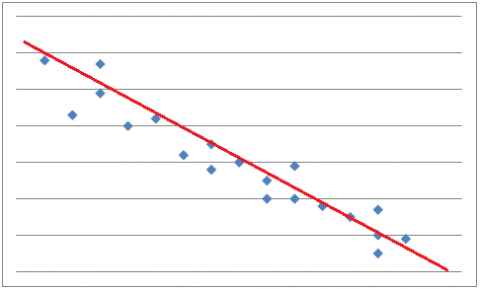STANFORD, CA — A new study released by researchers at Stanford University shows that more and more young variables are choosing to keep their relationships causal.
Led by husband-wife duo Drs. Franz and Benny Fitz, the research revealed that the younger generation is upending the country’s central tendency towards traditional dating at significant rates. The breadth of the finding surprised the team. “We usually find a standard amount of deviation from the mean, but what we’re seeing is a massive regression from more formal relationships,” said Juan I. Stand, a postdoctoral research fellow.
One variable explained why it prefers this new type of relationship. “It’s just that they can become so dependent. I’ve always thought of myself as a strong, independent variable. But, I also like to have some level of interaction. Keeping it causal allows me to have both.”
Another expressed the reasoning in more explicit terms. “I have very particular needs. If their p is too small, I want to be able to reject them.”
But other variables categorically objected to the finding, claiming it is “just one mode” of living. One variable, like others scattered around the country, said it is plotting ways to find more meaningful relationships: “Relationships take a lot of work. Correlation doesn’t just lead to causation. It could mean a lot of other things, too.”
These relationships often become more complicated. Next week Franz and Benny Fitz and are expected to release their study on the discrete mathematics involved when a third variable comes into a relationship.
Image credit: Mathplanet



